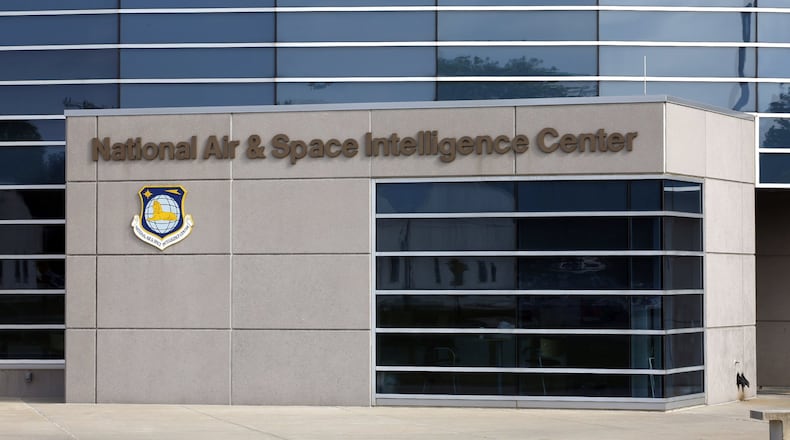The law requires that all Department of Defense and federal Intelligence Community components share UAP information with NASIC, as well as the Pentagon office on the issue, the new Airborne Object Identification and Management Synchronization Group.
Wright-Patterson Air Force Force Base was the headquarters of Project Blue Book, the Air Force’s program to investigate UFOs in the 1950s and 1960s until it was terminated by the Secretary of the Air Force on Dec. 17, 1969.
Project Blue Book, and forerunners known as Project Sign and Project Grudge, investigated 12,618 sightings reported around the world between 1947 to 1969. Of those, 701 were never explained, according to a January 1985 letter on the topic issued by Wright-Patterson public affairs officials.
With a Cold War going on in the 1950s and ‘60s, the Air Force took the reports seriously.
“We were afraid that it was a sign of Soviet technological advancements,” Robert Young, a historian at the National and Air Space Intelligence Center, told the Dayton Daily News in 2015. “That’s what we were worried about, that this was Soviet stuff. So we were the experts in bad guy air and space equipment.
“There was a fear, an uncertainty what the Soviets had and, of course, Hollywood drove a bit of fear about beings from outer space and flying saucers so that did make the project more challenging in some ways,” he said.
A declassified 1992 CIA report concluded more than half of those reports were sightings of the U-2 and SR-71 spy planes.
With a budget of more than $500 million and some 4,100 employees, it is NASIC’s job to gather and report intelligence about threats to the nation in the air and space.
“Someone on the intelligence committees thought they (NASIC) should be very much in the loop,” said Douglas Dean Johnson, a Maryland blogger and retired consultant who followed the legislation since its beginnings last summer.
“NASIC is the logical place to conduct investigations of unidentified airborne phenomena, and the new role will not greatly add to the organization’s workload,” said Loren Thompson, a Virginia-based defense industry analyst familiar with NASIC and Wright-Patterson. “However, it won’t be long before conspiracy theorists start charging that NASIC is part of a cover up aimed at hiding the truth.”
Also stipulated in the bill: A government task force, the Unidentified Aerial Task Force, is mandated to report to Congress each quarter on its findings.
In mid-May this year, the House Intelligence Subcommittee hosted the first public congressional hearings on UAPs in more than 50 years.
Though Congress formalized a role for NASIC, members are saying little. A spokeswoman for the Senate Select Committee on Intelligence declined comment and referred questions to the office of Florida Sen. Marco Rubio, who once was relatively outspoken on the subject, saying last year he wanted the government to take the subject of UFOs/UAPs “seriously.” Ansley Bradwell, press secretary for Rubio, declined to comment.
Rubio, R-Fla., said in a release last year that the “bill prioritizes the (Intelligence) committee’s ongoing oversight of China’s malign influence operations, unidentified aerial phenomena.”
“How can we have stuff flying over restricted military airspace and not even be curious — not to mention concerned — about who it is and why they’re here?” Rubio, Senate Intelligence Committee vice-chair, asked last year.
NASIC did not respond to questions.
“Incursions by any airborne object into our SUA (special use airspace) pose safety of flight and operations security concerns, and may pose national security challenges,” the Pentagon said in December 2021, in announcing the creation of a new office dedicated to investigating UFOs. “DOD takes reports of incursions —by any airborne object, identified or unidentified — very seriously, and investigates each one.”
About the Author

